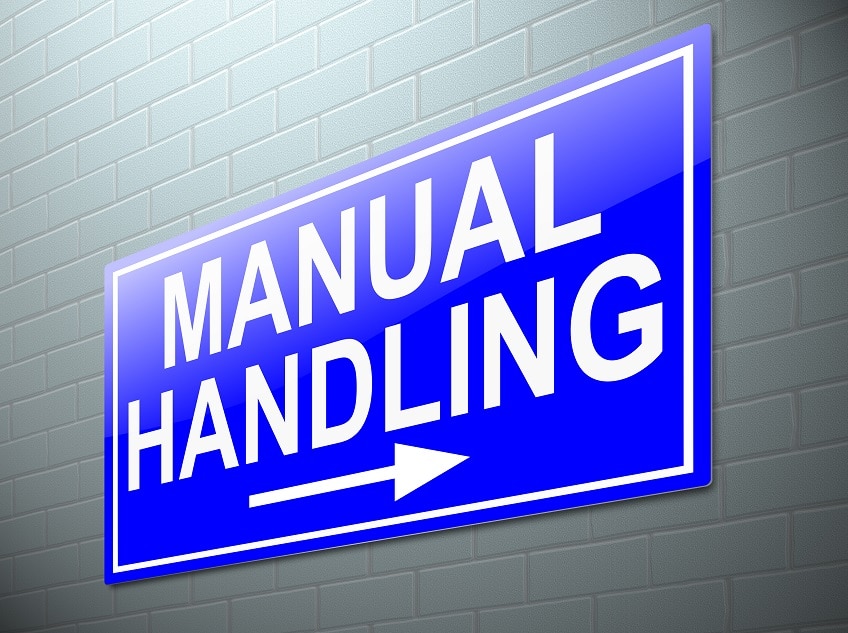Did you know that if you invest in manual handling training for your business it could save you money? There were over 100,000 non-fatal accidents at work in Ireland in 2017 resulting in employees being absent for four or more days. A course in manual handling could help to lower the absenteeism rate, create a safe environment for your staff and reduce the risk of insurance claims.
What is manual handling?
Manual handling takes place in almost every workplace in some way, shape or form. The construction, agriculture, retail and hospitality sectors are the most obvious but it also is likely to be a concern for childcare centres, transport companies and the medical profession. Continuous manual handling of heavy objects can cause lower back; hip and joint pain while severe trauma can cause fractures or breakages. Incorrect postures, poor lifting and failing to plan a route can all increase the risk of injury.
Manual handling training courses are not a requirement by law for businesses in Ireland. However, providing employees with a safe and healthy working environment plays an important factor in an individual’s quality of life. Correct manual handling training can aid an employer in helping to create and cultivate a safe working environment while limiting potential absenteeism due to workplace injury.
Choosing your instructor
As an employer, it is important to choose a manual-handling instructor that can tailor the course to your business. Every enterprise will have different operations and procedures so the course should be customised to your employees’ needs. There are a number of manual handling providers in Ireland who can deliver the training at your place of work.
Before selecting an instructor, speak to them about their previous experience in risk assessment and emphasise that their training should centre on the prevention of injuries. An experienced instructor will know that prevention is essential to good practice.
Ask the instructor to meet with you on site to give them an idea of the type of manual handling that is involved. They may take this opportunity to observe employees carrying out tasks and take notes discreetly. The more information you can provide the instructor with the better he can adapt the training to address your needs.
The training course should ideally over the law related to manual handling, anatomy, methods of prevention and lifting techniques particular to the employee’s tasks.
Courses
There are a lot of training providers who offer day training courses. Instructors will teach the basics of manual handling including;
- Understanding the consequences of incorrect lifting
- Manual handling legislation
- Caring for your back
- Basic anatomy, physiology and kinesiology
- Mechanics of manual handling and lifting techniques
Some trainers will ask participants to view workplace accidents related to manual handling on screen and task them with analysing what occurred prior to the accident, breaking down the incident and identifying the risks involved that could have been avoided.
Instructors will physically display the correct lifting techniques and require all participants to actively participate in demonstrating the correct procedures one by one. The instructor will point out directly where there is an issue in an employee’s lifting technique.
A good instructor will also work with the business after the training. They will work with the business to identify any potential areas for improvement. Furthermore, they will give practical advice on how to devise a better system.
Skills
Having completed the training employees will be more conscious at work while carrying out manual handling tasks. They will take the time to plan a route before engaging in the activity and determine if a load is too heavy to lift. Staff will be more aware of their body movements while working, avoiding twisting, turning and bending the back.












Comments